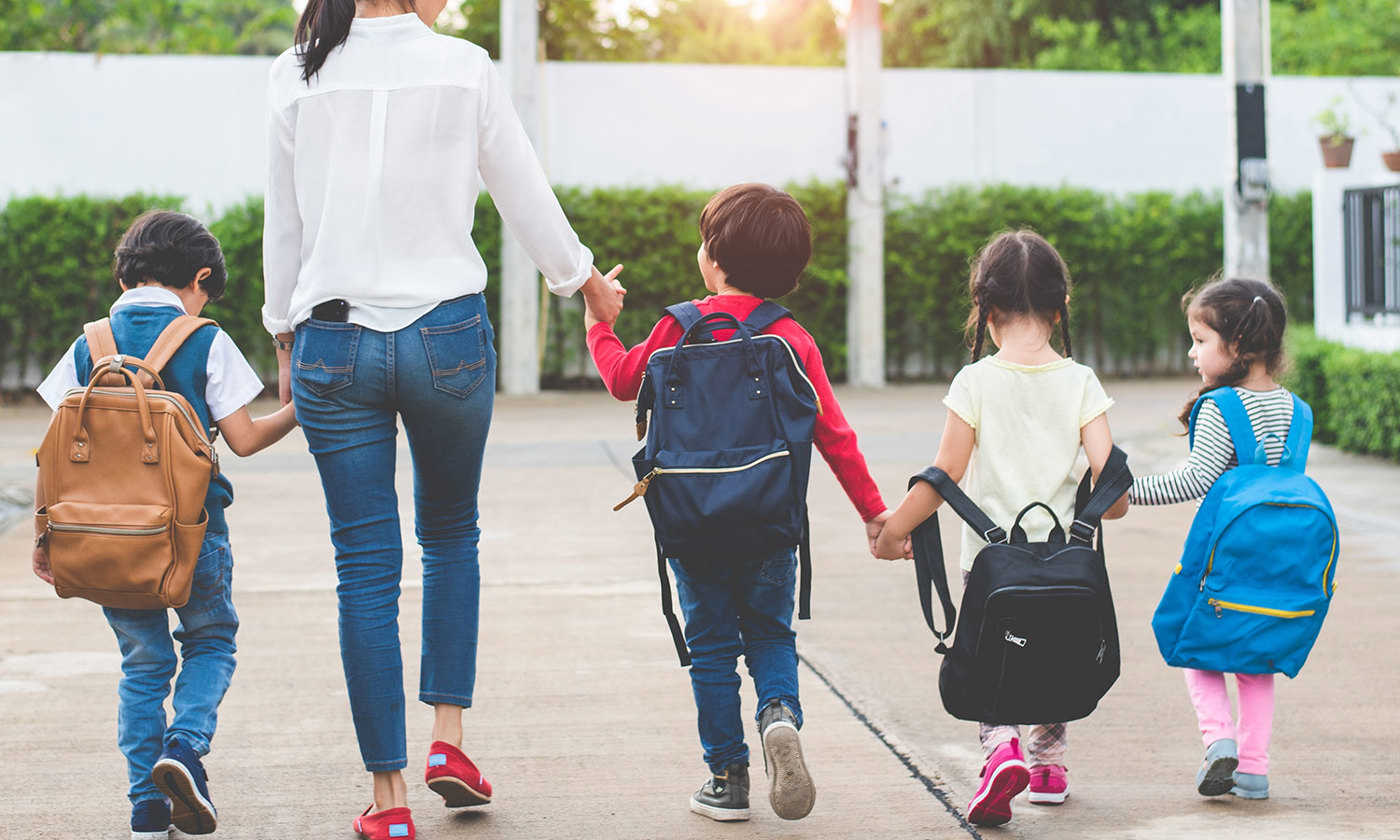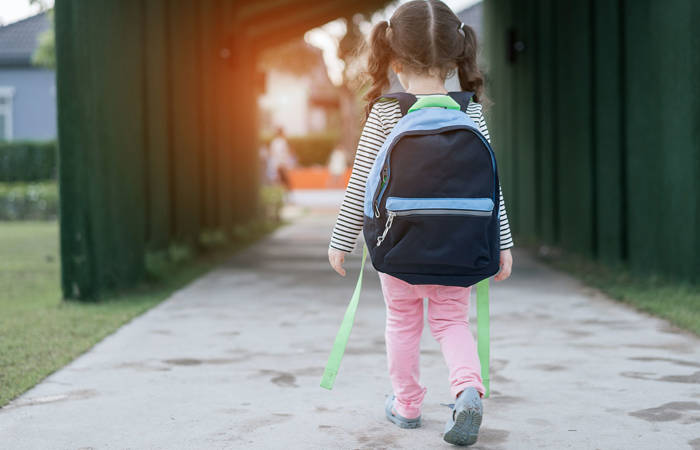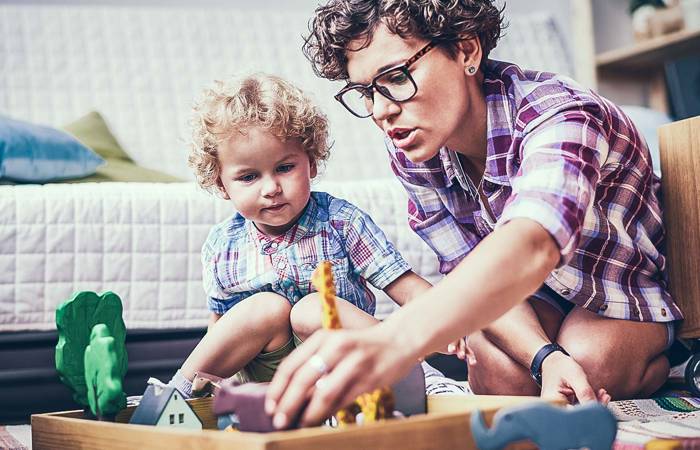Like what you see?
Sign up to receive more free parenting advice.
Thank you for subscribing to our newsletter!
Lifestyle

Credit: iStock.com/Shutter2U
COVID-19 has caused massive changes to family life that were often abrupt and impacting work, relationships, routines, school and care arrangements. As life settles into a new normal there is further adjustment for families.
One of the more difficult measures imposed by governments during the COVID-19 pandemic has been lockdowns. And, undoubtedly, many parents struggled to cope with the juggling act of caring for young children while trying to deal with the transition to working from home.
Not only were parents faced with the difficulty of explaining to their children the complex reasons why they were staying at home for a long period of time, but the children were having to adapt to having one or both parents working from home.
A UNICEF report released in 2021 focused on how the pandemic affected the mental health of children and adolescents.
The report explored the impact of the pandemic on a child’s personal world, such as lockdowns, school closures, and disruption of services (such as mental health care). All these factors have led to increased reports of fear and stress, anxiety, depression and anger. But, according to the report, there were positive mental health outcomes too. This includes having quality time with family, online learning, and time for recreation.
But when lockdown ended, children were then faced with a new change – a parent or parents, who had been working from home, were now back in the office.
What to do when children are anxious about change
So what should you do if your child has been feeling unsettled about a parent returning to the office when they have been enjoying them working from home?
“It may depend on the child and their situation. Any significant change can be challenging to negotiate so if you are noticing anxiety consider how you might ease the transition. Can you do a gradual return to work? Can you front load your holidays to have more long weekends?”, says Dr Jade Sheen, Associate Professor School of Psychology at Deakin University.
“If none of these solutions are feasible can you consider cutting back outside of work activities for a while to still enjoy that home family time.”
Dr Sheen claims there are many practical ways to help children deal with the transition from having a parent or carer work from home, to having them working distantly again.
“Parents can reduce activities outside of work for a while to have more time with their child. They can also have set date days for one-on-one time with each child,” Dr Sheen says.
“It’s a good idea to organise a family schedule so kids know what they are doing, and when they are doing it.
“Find the time to talk about your day and the value of your work over family meals. That’s because children also need to know that you are okay at work as well!”
Approach change with curiosity, interest and a sense of challenge rather than with fear. Also, make sure you role model this.Dr Jade Sheen
Stay up to date with the latest news and articles from First Five Years
Thank you for subscribing to our newsletter!
How much should you tell your children?
There are also ways parents can help children understand the transition from wearing masks, to a more normal life.
“Discuss these changes with age-appropriate information included, ask them questions about their observations and let them ask you questions in return,” Dr Sheen says.
“Approach change with curiosity, interest and a sense of challenge rather than with fear. Also, make sure you role model this.”
Being totally open with your kids about your work is very important at all times. According to Dr Sheen, children need to know some aspects about your life and what is going on for you.
“We need to provide developmentally appropriate information to children about change to contain anxiety, role model transparent and open communication and provide security in the face of change. The key component here is developmentally appropriate.,” Dr Sheen said.
“If you consider the material inappropriate for the child's age and stage of development then it is okay to set a boundary and let them know that as the adult you are managing the situation and they don't need the details. If it directly impacts them however, consider giving them as much information as they need to answer their questions, in language they will understand.”
When 40-year-old Susan worked from home during lockdown, she found it brought her closer to her three-year-old daughter. She explained to her child in simple terms about what was happening. She also told her daughter that they would have more time together during her work breaks – as well as before and after work, due to not having to commute to the office.
“She embraced having mummy at home 24/7 and I also loved being there for her. Sure, it was tricky from time to time, especially if I was on the phone to a client and she had a melt down! But it also meant that we were able to watch movies together, cook pancakes, take the dog for walks and snuggle up on the sofa to read books,” Susan says.
“As a single parent, this was so important to me and I cherished those days. But, when I went back to the office and my daughter was having a mixture of day care and my mother looking after her, I felt that she really missed me more than ever.”
The importance of quality time with children
Susan dealt with her daughter’s emotions by talking about the transition and also making sure that, when she was home from work, she gave her daughter quality time.
“But I felt sad for her. She was so used to having me around her all the time, and then I was gone! I know it was confusing for her. I am lucky to have my mother living nearby and she has been able to be with her two days a week, but I know my daughter missed me very much and that was kind of heartbreaking,” Susan says.
Dr Sheen said it’s crucial to ask your children to talk about their feelings about COVID-19 issues, and ask about how they are feeling now that the restrictions have lifted.
“Whether it's COVID-19 related or not, we need to encourage children to talk about their feelings through the course of their lives. Doing so can:
- Support the development of close, connected family relationships
- Improve the child's ability to reflect on their emotional state
- Improve emotion literacy and problem solving
- Improve wellbeing
- Improve mental health outcomes later in life."






